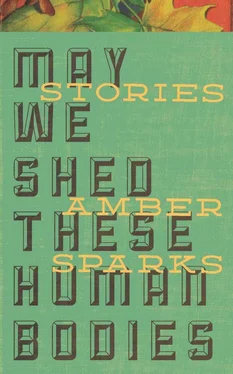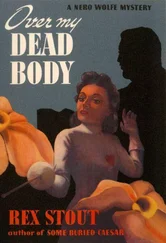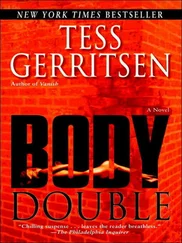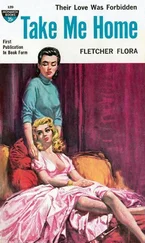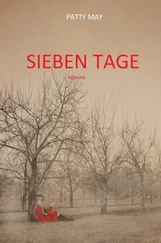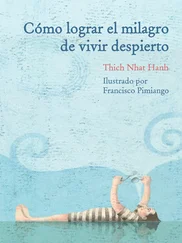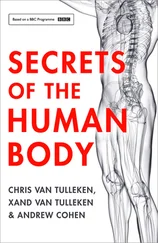Amber Sparks - May We Shed These Human Bodies
Здесь есть возможность читать онлайн «Amber Sparks - May We Shed These Human Bodies» весь текст электронной книги совершенно бесплатно (целиком полную версию без сокращений). В некоторых случаях можно слушать аудио, скачать через торрент в формате fb2 и присутствует краткое содержание. Год выпуска: 2012, Издательство: Curbside Splendor Publishing Inc., Жанр: Современная проза, на английском языке. Описание произведения, (предисловие) а так же отзывы посетителей доступны на портале библиотеки ЛибКат.
- Название:May We Shed These Human Bodies
- Автор:
- Издательство:Curbside Splendor Publishing Inc.
- Жанр:
- Год:2012
- ISBN:нет данных
- Рейтинг книги:5 / 5. Голосов: 1
-
Избранное:Добавить в избранное
- Отзывы:
-
Ваша оценка:
- 100
- 1
- 2
- 3
- 4
- 5
May We Shed These Human Bodies: краткое содержание, описание и аннотация
Предлагаем к чтению аннотацию, описание, краткое содержание или предисловие (зависит от того, что написал сам автор книги «May We Shed These Human Bodies»). Если вы не нашли необходимую информацию о книге — напишите в комментариях, мы постараемся отыскать её.
May We Shed These Human Bodies peers through vast spaces and skies with the world's most powerful telescope to find humanity: wild and bright and hard as diamonds.
May We Shed These Human Bodies — читать онлайн бесплатно полную книгу (весь текст) целиком
Ниже представлен текст книги, разбитый по страницам. Система сохранения места последней прочитанной страницы, позволяет с удобством читать онлайн бесплатно книгу «May We Shed These Human Bodies», без необходимости каждый раз заново искать на чём Вы остановились. Поставьте закладку, и сможете в любой момент перейти на страницу, на которой закончили чтение.
Интервал:
Закладка:
Go over to the Jacobsons', her father says, frowning over his Rice Krispies. He has just learned he has been cast as Polonius instead of Hamlet. He is furious; he is a little old, yes, but he and the ghosts have been discussing the unknown country and he felt prepared to play Hamlet. His heart hurts as Hamlet’s did. He hangs at the edge of the world like Hamlet did. He knows the ghosts are inarticulate, and mostly silent, but they are the only returning travelers he knows and so he must make do.
Mrs. Jacobson says I can't always use their computer, his daughter tells him. She says you really ought to buy me one.
Her father says nothing. He chews and thinks Hamlet-shaped thoughts.
Mrs. Jacobson, announces his daughter, says a man paralyzed by grief is one thing, but a man paralyzed by grief for seven years is another thing entirely.
The father looks up from his Krispies, a scowl stretched across his face. Who the hell is she to say something like that? Just who the hell is she?
His daughter shrugs. Okay, I'll stay late tonight at the library, she says. I'll use the computers there. And the ghosts won't be able to distract me, she thinks. They won't be able to make me feel cold and strange.
She suspects the ghosts came tumbling in, faster and faster, more and more of them, because of her mother’s death. Because, really, of her and her father. They make strong graves for these ghosts. Their house is a bed of quiet sadness. She sighs to think of it, feels the ghosts wash blue and cold through her chest and head at the thought. She shivers. When she was small, just after her mother died, the ghosts were tender with her when her father was not. They kept her safe. They absorbed her tears in their whispers and kept certain things from her, things that children might be afraid to know. Mysteries were hidden; the darkest secrets of the buried stayed behind with their bodies while their spirits went wandering. Her father could see the ghosts' thoughts drift like smoke above his daughter's head, smudging past her ears and eyes and mouth, but never entering. This is how the ghosts are with children.
With adults, it is different. The ghosts know how much they can do, and they keep their distance until the children are no longer children. Then they begin to enter, to play, to unburden themselves of their soft, faded stories, grown strange and scallop-edged like someone has been at them with pinking shears. They begin to blow into the nostrils, the eye sockets, float down the throat and into every hole they can find in the body. They look for a temporary home, for a memory drought, for an empty shell to feel whole in for a little while. They stroke and scrape and they know nothing of what they are supposed to be, for they have no clear thoughts and only a vague, confusing notion of how sensations are supposed to feel. They move hands down, move bodies up to meet them, blow hot breaths on eyelids and teeth and spill imaginary liquids down the pages of books and the legs of tables. They are careless with human flesh.
Could there be such a thing as ghosts, the daughter asks her Biology teacher. Mr. Phipps smiles, and some of the boys snort with laughter. No, really, she says. It’s important. I need to know. Scientifically, I mean, could there be such a thing?
Of course not, says Mr. Phipps. You kids tell too many ghost stories, watch too many slasher movies. You scare yourselves silly. He turns back to the white board, labels a picture of a liver. L–I-V-E-R. We are deathers, the daughter thinks. We are the opposite of livers. A note sails through the air, lands on the daughter’s desk. She unfolds it, reads the letters inked in blue: Q: COULD THERE BE SUCH A THING AS RETARDS? SCIENTIFICALLY, I MEAN? Her name is the answer.
She folds the note back into a square, then a smaller square, then a smaller one, until the paper won’t bend anymore. She flicks it onto the ground and watches it lie there, small and white and poisonous, choking her from the floor. Lately she feels like she is always choking, always trying to find more air. She is so apart, a wall of water away, drowning in a world that no one else can see.
The vice-principal frowns. You’re telling me your father is some kind of ghost hunter, or something?
No, no, says the daughter. He feeds the ghosts. We feed them. He says they need us.
The vice-principal sighs, pushes back her chair, and stands up. I know how difficult it can be, she starts, to lose a loved one. I—
I’m not making it up, says the daughter. It’s not about my mother, and I’m not making it up. She folds her arms. Stares at the vice-principal with light blue eyes like ice crystals. They make the vice-principal uncomfortable. They seem unlikely to melt. They seem diamond hard. Maybe she can see ghosts, the vice-principal thinks. She certainly is the strangest girl the vice-principal has ever met. You’d never believe she could go to prom, or play soccer, or kiss a boy, or even cheat on a test. She seems like a little dead thing, not quite of this world.
The girl appears to be a mind reader also, because she suddenly responds to what the vice-principal has not said aloud. I’m not strange, she says. I don’t want the ghosts. It’s my father who’s done this to both of us. Go talk to him, not me. He’s the one.
For some reason, the vice-principal shivers at this. For some reason, it feels like this might be true.
The father tried to love a person again, once. The girlfriend was an actress, kind but high-strung and sensitive. She never noticed the ghosts. She moved in a week before the daughter’s tenth birthday, and moved out exactly two years later. The daughter actually circled the date on their Skyscrapers of the World calendar. The ghosts were celebrating, zipping about like faint fireworks, so she tried to make it seem like a celebration, too. But really, she was sad. She had liked the girlfriend. The girlfriend remembered things like holidays and school supplies. She had sunny blonde hair, and she would let the daughter play with her makeup sometimes, and when she was there the house seemed a little more like a home again. A place where people lived.
There was an awful row one day, and then the next day the girlfriend was standing at the top of the stairs with her silver suitcases packed, one in each hand. Right before she left forever, she put her hand on the daughter’s shoulder and told her to be good. And leave this house, she said. As soon as you can, leave it like I’m leaving it. Take everything you own and don’t ever come back.
Get out, said the father. Get out of my house. The girlfriend bit her lip and the daughter could see she had been crying hard, black smudges under her eyes and her pretty lips all swollen and red. The ghosts were practically pushing her out of the house, and she went stumbling out the door and into a taxi waiting in the driveway. And that was the last they ever saw of the girlfriend. Yellow hair and silver suitcases, disappearing into a green cab.
Good riddance, said the father. The ghosts flung themselves across his shoulders in agreement. After that, they always lived alone, the daughter and the father, wrapped in their ghosts and their loneliness.
The daughter wakes up screaming. She looks across the room and sees in her mirror a gaping violet-black void, and ghosts streaming out, spinning free of it like fast winds off the desert. One of them flies too fast, and his skidding stop over her leaves a long narrow burn mark on her arm.
Don't be afraid, her father says when he comes to check on her. The ghosts like to be close to us. They feed off of our warmth. They need us.
His daughter shivers under the blankets and covers her head with her pillow. No one else has ghosts, her muffled voice says. No one else even believes in them. She massages her hurt arm.
Читать дальшеИнтервал:
Закладка:
Похожие книги на «May We Shed These Human Bodies»
Представляем Вашему вниманию похожие книги на «May We Shed These Human Bodies» списком для выбора. Мы отобрали схожую по названию и смыслу литературу в надежде предоставить читателям больше вариантов отыскать новые, интересные, ещё непрочитанные произведения.
Обсуждение, отзывы о книге «May We Shed These Human Bodies» и просто собственные мнения читателей. Оставьте ваши комментарии, напишите, что Вы думаете о произведении, его смысле или главных героях. Укажите что конкретно понравилось, а что нет, и почему Вы так считаете.
